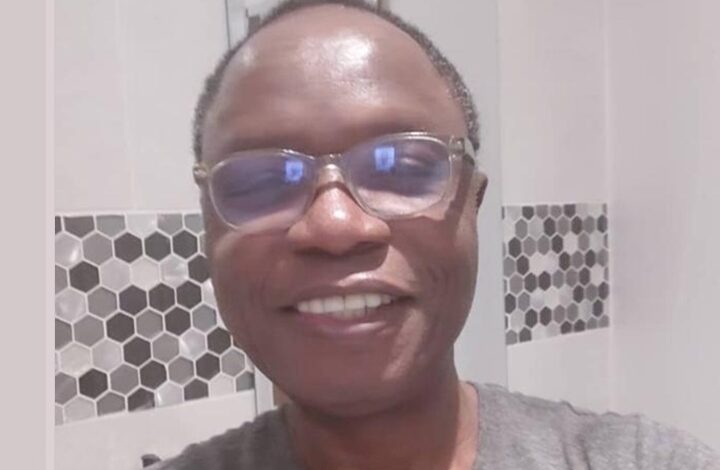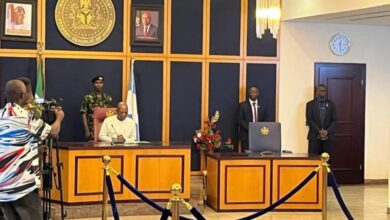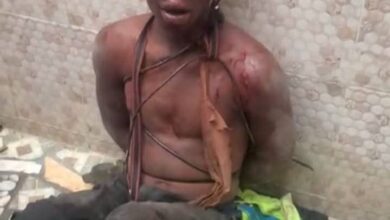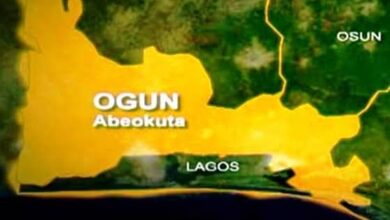Nigeria’s Retired Princes And The Price Of Stolen Bread

“Justice is on trial for multiple reasons, such as delays, systemic inefficiency, corruption, bureaucratic bottlenecks and inconsistent judgments” — John Tsoho, Chief Judge, Federal High Court of Nigeria
In the opinion of many legal experts, including judges, the Nigerian judiciary or justice system has been on trial, particularly over the handling of political matters, since the country’s return to civilian rule in 1999, following prolonged military dictatorships.
In his address on Why Nigerian judiciary is on trial at the recently-ended Annual General Conference of the Nigerian Bar Association (NBA) in Enugu, south-eastern Nigeria, Justice John Tsoho, Chief Judge of the Federal High Court, said: “Justice is on trial for multiple reasons, such as delays, systemic inefficiency, corruption, bureaucratic bottlenecks and inconsistent judgments.”
The author,
These anomalies may not all be blamed on judges. But there appears to be no appreciable effort on the part of their Lordships at improvement. On the contrary, judges and lawyers are conspiring with the political class and highly placed individuals with means to buy court decisions and drag the Bar and Bench into disrepute.
Courts of coordinate jurisdiction pronounce contradictory decisions on the same or similar cases, and with all manner of technicalities introduced to pervert justice.
Whenever politicians or politically exposed persons tell their opponents to go to court, the general understanding is that the outcome is a foregone transactional conclusion.
Of the seven Presidential Elections held in Nigeria’s Fourth Republic from 1999, all but one ended in Court. The Supreme Court, the apex court in the land, decided the legal disputes that arose from the 1999, 2003, 2007, 2011, 2019, and 2023 elections, with some cases lasting for over several months, leaving the country on political tenterhooks.
The exception was the 2015 presidential vote, which was notable because, for the first time in Nigeria’s political history, an incumbent candidate, President Goodluck Jonathan, telephoned his opponent, then-candidate Muhammadu Buhari, to concede defeat before the official results were announced.
The outcome of each legal contest often left a big question mark on the legitimacy of ensuing governments and political divisions in the multi-ethnic and religiously restive Africa’s most populous nation, with more than 230 million people.
Nigeria is, therefore, no stranger to post-election violence and instability.
In January 2020 the Supreme Court declared APC’s Hope Uzodinma as the governor of south-eastern Imo State and annulled the 2019 election of Emeka Ihedioha of the opposition Peoples Democratic Party (PDP).
In a unanimous judgment of the seven-member panel, read by Justice Kudirat Kekere-Ekun, (now Chief Justice of Nigeria, CJN ), the apex court said the results from 388 polling units were unlawfully excluded during the collation of the final governorship election result. She said with the results from the 388 polling units added, Uzodinma polled a majority of the lawful votes and ought to have been declared the winner of the election by the Independent National Electoral Commission, INEC.
However, in setting aside the declaration of Ihedioha as the winner of the governorship election, the Supreme Court did not provide details of the new votes scored by each of the candidates after the addition of the results from the 388 polling units. The Supreme Court also affirmed Uzodinma’s re-election in 2023.
Apart from election-related cases, legal disputes that have produced controversial if not outlandish outcomes abound in corruption trials involving politically exposed individuals in Nigeria.
James Ibori, a former governor of Nigeria’s Midwestern Delta State, is a typical example. He was acquitted of corruption charges by several courts in Nigeria, but arrested in Dubai and subsequently transferred to the UK, where he was sentenced to 13 years in prison in 2012 by a court in London for the same offence.
Ibori, who served as governor from 1999 to 2007, was convicted of 10 counts of conspiracy to defraud and money laundering before Southwark Crown Court, based on evidence produced by the Metropolitan Police.
One of the counts he admitted related to a US$37 million fraud on the sale of Delta State’s share in the Nigerian privatized phone company.
In 2021, the UK returned more than US$5 million to Nigeria as part of the money stolen by the former governor. Ironically, Delta State, which did not demand accountability from Ibori, had shamelessly expected to benefit from the loot, resulting in a dispute between the state and the federal government.
In 2023, a London judge ordered the confiscation of US$130 million, which was traced to Ibori, and Nigeria’s request to Britain to repatriate the amount is still pending.
Fast forward to 1st September 2025, a court in Finland sentenced the faction leader of Nigeria’s secessionist group to six years in jail. This is the story of Simon Ekpa, a secessionist activist jailed for terrorism.
The court heard that Ekpa, a Finnish citizen of Nigerian origin, “attempted to promote the independence of the so-called Biafra region in south-eastern Nigeria by illegal means. He also equipped armed groups with weapons and explosives through his network of contacts.”
Ekpa, a former Councillor in Finland’s Lahti city, denied the charges, but the Päijät-Häme District Court’s panel of three judges unanimously convicted and sentenced him.
For several years, parts of south-eastern Nigeria have endured instability due to the conflict between a secessionist movement, the Indigenous People of Biafra (IPOB), and Nigerian security forces.
While Ekpa, who was also convicted of “aggravated tax fraud,” claimed he led a faction of IPOB, the group’s lawyer, Ifeanyi Ejiofor, has described the Finnish District Court ruling against Ekpa as “a historic lesson,” adding that IPOB had repeatedly disowned Ekpa and condemned his activities.
Ejiofor called “Ekpa’s so-called ‘Biafra Liberation Army’ a scam,” adding that “Ekpa deliberately encouraged his followers to claim IPOB membership whenever he was arrested. This is deception.”
IPOB was formed in 2012 as a peaceful movement but reportedly launched an armed wing in south-eastern Nigeria in 2020, to defend the Igbo ethnic group. The separatist group is banned in Nigeria, and its acclaimed leader, Nnamdi Kanu, has been on trial since his arrest in October 2015 on terrorism charges, which he has denied.
Nigeria confirmed Simon Ekpa’s extradition plans in 2024, and by 1st September 2025, he had been tried, convicted and sentenced.
Meanwhile, Kanu’s case lingers, moving from one courtroom to another, with his lawyer calling the trial a national disgrace.
The IPOB leader was initially granted bail but fled abroad after armed soldiers invaded his residence in September 2017, resulting in the reported death of at least 18 people.
In June 2025, a Kenyan court declared Kanu’s transfer from Kenya to Nigeria illegal and unlawful. This was in agreement with a Nigerian Federal Court of Appeal earlier ruling of 14th October 2022, which freed Kanu, describing his “forceful rendition” from Kenya as “against all known international conventions and treaties.”
Apart from the factors and political interference, which Justice Tsoho and others have identified as the bane of the Nigerian judiciary, what else could be responsible for the faster dispensation of justice in England and Kenya than in Nigeria?
There is the popular saying that justice delayed is justice denied, yet some Nigerian judges and lawyers have constituted themselves into enablers for the erosion of public confidence in the country’s judiciary and justice system. This pathetic trend has persisted despite deafening calls for a positive change.
Following Justice Kekere-Ekun’s appointment as the CJN in 2024, a former President of the NBA Olisa Agbakoba charged the new CJN to rebuild ‘declined’ public confidence in the judiciary.
Similarly, Prof. Chidi Odinkalu, a constitutional law teacher and a relentless advocate for judicial reforms to consolidate democracy in Nigeria, recently released a path-breaking book – The Selectorate: When the people vote but the judges choose, which details the growing cases of judicial involvement/interference threatening electoral democracy in Africa.
The Nigerian judiciary has failed where the Finnish and British judicial systems have succeeded. Yet, Nigerian authorities are hailing Ekpa’s conviction in Finland as a major victory against terror, instead of undertaking a serious introspection to put in motion urgent measures to unshackle the country’s judiciary.
The Nigerian judiciary must wake from self-destructing slumber and assume its constitutional responsibility with courts as the real Temple of Justice, and the last hope of the masses.
Paul Ejime is a Media/Communications Specialist and Global Affairs Analyst.
Post Views: 72





